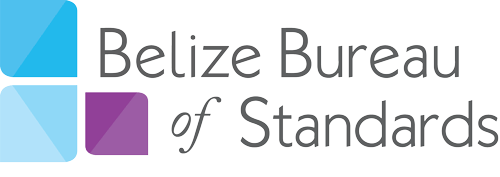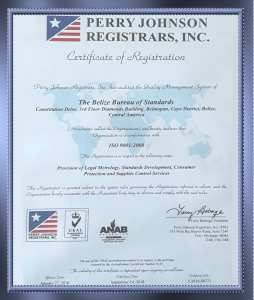Introduction to the Energy Efficiency Labelling Scheme:
The Caribbean Community (CARICOM)’s strategic plan for 2015-2019, responding to the fact that most Caribbean States are particularly vulnerable to the potential consequences of climate change, framed the topics of energy efficiency, diversification and cost reduction as the key to stimulating economic development under the priority of “Building Economic Resilience”. This priority advocates for mitigation and prevention of climate change focusing on energy efficiency and increased use of renewable energy sources.
With this in mind, Countries across the region begun putting numerous initiatives in place at the national level to create avenues for benefits from improved energy efficiency and renewable energy usage. One such initiative was the Strengthening of the Regional Quality Infrastructure in the Caribbean in the Areas of Energy Efficiency and Renewable Energies Project, which was dubbed the R3E Project (Renewable Energy and Energy Efficiency Project).
The R3E Project funded through a 1 million Euro investment by the Federal Ministry for Economic Cooperation and Development, Federal Republic of Germany (BMZ), was administered by the German National Metrology Institute (PTB), with implementation by the CARICOM Regional Organisation for Standards & Quality (CROSQ) Network, led by the CROSQ Secretariat and the Dominican Institute for Quality (INDOCAL) of the Dominican Republic.
The project was composed of three components:
- Support of regional standardization activities for this sector, and use of these activities for the creation of binding directives and technical regulations.
- Establishment of technical expertise for testing and measurement services in individual countries
- Awareness-raising, informational and public relations activities, as well as dialogue with persons in decision-making and multiplier positions.
In Component 1, the intended result was the adoption of relevant international standards, and adapting them to the Caribbean context where necessary. This included the development of Minimum Energy Performance Standards (MEPs) for Buildings; compact fluorescent lamps (CFLs) and light-emitting diodes (LEDs); refrigerators; and air conditioners; with future plans for solar photovoltaics and solar water heaters, as well as electric pumps. These MEPs for lights, refrigeration and air conditioners are inclusive of labelling requirements for the appliances in question.
Component 2 saw the introduction or expansion of testing infrastructure for lights, and refrigeration and air conditioning in Trinidad and Tobago and Jamaica respectively, through various projects and initiatives, as well as the training of requisite staff in the implementation of the testing requirements of the standard for the appliances.
Component 3, the awareness component consisted of sensitization sessions for the labelling scheme for appliances in the piloting and testing countries.
The labelling scheme encompasses both the application/ implementation of the standards as well as the application of requisite testing for the appliances. The labelling scheme is being implemented on a pilot basis in the first instance in Belize, St. Lucia, Jamaica, and Trinidad and Tobago. The scheme will put control into the hands of the consumer by educating them on what to look for and helping them to demand more from their importers and retailers, while also ensuring that those who source and sell appliances are more conscientious in their choices and also take the interest of the country’s health and sustainability into mind while conducting business.
How did we get here?
In 2012 Belize established a National Energy Policy Framework, and a National Sustainable Energy Strategy (2012–2033) as part of the Energy Unit Strategic Plan. The National Sustainable Energy Strategy includes a number of programs and activities to support the development of non-renewable and renewable energy resources and improve energy efficiency and conservation in Belize. The strategy highlights the importance of creating a national culture for energy efficiency for which this regional initiative was timely.
The Bureau along with the Ministry of Energy and other stakeholders has actively participated in the Regional Technical Committee with responsibility to develop the Minimum Energy Performance Standards (MEPS) for these appliances to ensure that best practices are applied throughout CARICOM member states.
The Ministry of Energy has implemented several energy-efficient initiatives and measures to curb high energy costs, ensure environmental quality and address climate change. This, along with established energy strategy and action plan, served as key factors for Belize’s nomination and acceptance to be a part of this pilot labelling scheme.



